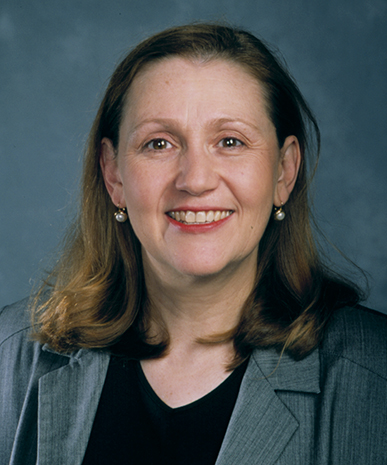FAYETTEVILLE, Ark. – Direct and honest communication with surviving children who are experiencing the loss of a sibling helps the survivors cope with their loss, according to research by University of Arkansas communication professor, Lynne M. Webb. Webb has directed research concerning the after-effects of a child’s death, specifically parents’ interactions with surviving children.
“Children respond best to direct, honest communication, even in hardships,” Webb said. “A parent’s first reaction may be to dance around the issue and conceal the truth to protect their surviving children, but children want an explanation.” That explanation can take many forms and parents can adapt their language to the child’s developmental stage. Nonetheless, children desire an explanation of what happened to their brother or sister, Webb explained. They turn to their parents as the most credible source for that explanation.
“It’s important that the parents, despite their grief, have direct, open communication with their surviving children so that they are not raising trust or emotional issues,” she said. “Parents can assist surviving children to express their grief in a healthy way by communicating directly and openly about the death.”
The research appears in Communication for Families in Crisis, a book describing communication methods, theories and strategies for effective management of a wide variety of crises families face. Webb is co-editor of the book, and co-authored “Death of a child: Mothers’ accounts of their interactions with their surviving children” with Kayla B. Johnson, a recent graduate of the master’s program in communication at the University of Arkansas.
Johnson interviewed 20 mothers, ranging from 24 to 88 years old, who had experienced the death of a child, to learn how these mothers communicated with their surviving children, and if it differed from how they communicated before the death of their child.
“If mothers can openly express their feelings, they allow their surviving child to do so as well,” Webb said in describing the findings of the study.
Johnson and Webb reported that how mothers communicated with their surviving children changed following the death of the sibling. The “majority of the mothers provided open communication, along with nonverbal affection, to comfort their children.”
Johnson discovered that all 20 interviewees endorsed honest communication as the best option. Even parents who didn’t communicate clearly at the time of the death, upon reflection, realized that it would have been the healthiest option for their surviving children.
“I was surprised that parents reported that close friends and family members disagreed, and that many thought that it was best to protect the surviving children from the truth,” Webb said.
Both Webb and Johnson had lost a child prior to conducting the research. After completing her thesis, Johnson founded the Zoe Foundation in remembrance of her daughter. The foundation provides financial assistance for funeral expenses to parents who have lost a child to death before the child’s second birthday.
Webb is a professor of communication at the University of Arkansas in the J. William Fulbright College of Arts and Sciences. Communication for Families in Crisis was published by Peter Lang Publishing.
Topics
Contacts
Lynne Webb, department of communications
J. William Fulbright College of Arts and Sciences
479-575-3046,
Liana Bugslag, intern
University of Arkansas
479-502-4315,
Barbara Jaquish, science and research communications officer
University Relations
479-575-2683,
